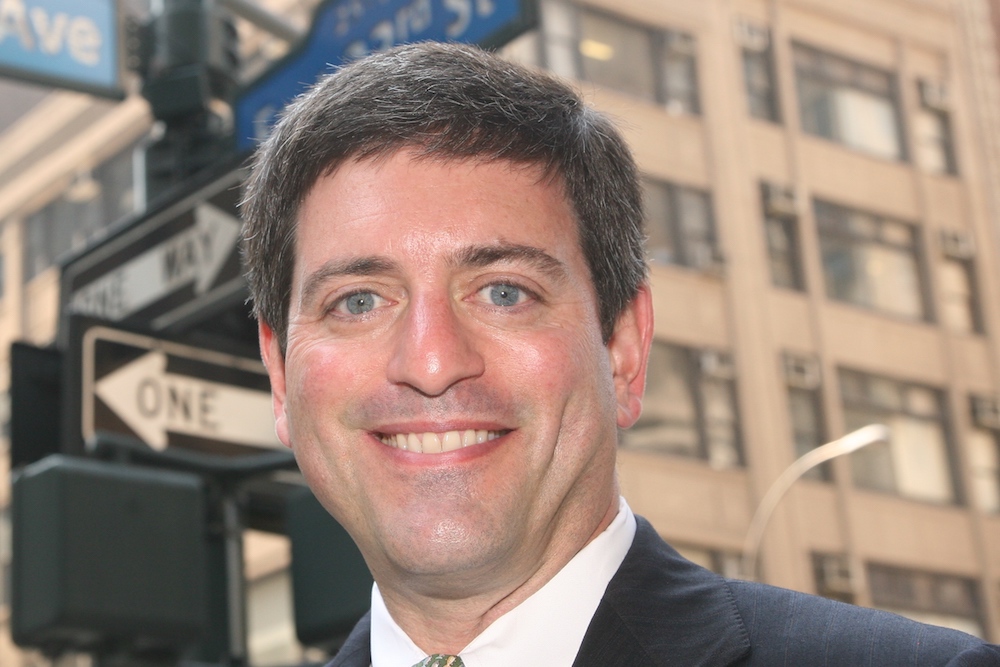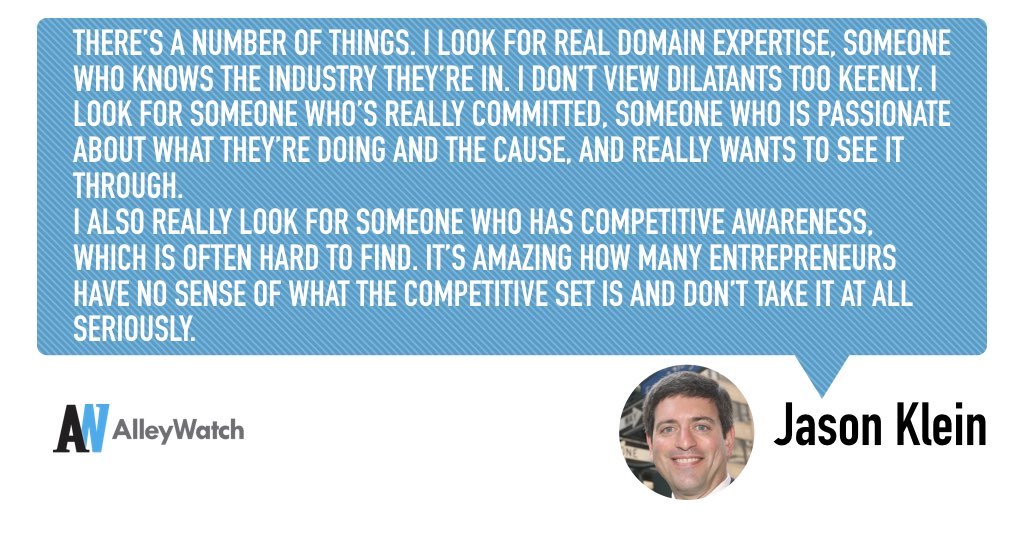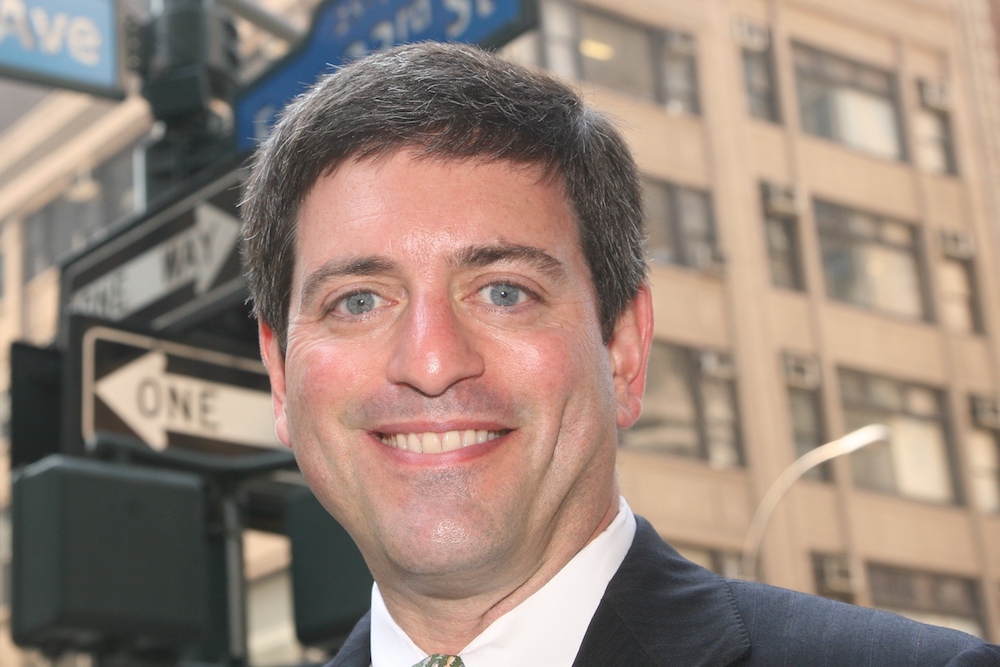Welcome back to Inside the Mind of a NYC Angel Investor, a new series at AlleyWatch in which we speak with New York City-based Angel Investors. In the hot seat this time is Jason E. Klein, Founder & CEO of On Grid Ventures. Jason is the Chairman of Harvard Business School Alumni Angels of Greater New York, New York Region Partner for Yard Ventures, a member of New York Angels, and Managing Director of Empirical Media. Jason sat down with AlleyWatch to talk about the discipline needed to be a successful angel investor, his investment thesis focusing on“GeoDisruptive” businesses, and his belief that“failure is not a badge honor.”
If you are a NYC-based Angel interested in participating in this series, please send us an email. We’d love to chat. If you are interested in sponsoring this series that showcases the leading minds in angel investing in NYC, we’d also love to chat. Send us a note.

Bart Clareman, AlleyWatch: Tell us about your journey into investing in startup ventures and how you came to found On Grid Ventures?
I spent most of my career in media, which from the early days morphed into technology. You had to have an entrepreneurial nature in the media industry to survive, given all the changes that have occurred.
When I left NNN five or so years ago I started thinking about what I wanted to do next, the pull of what was happening in the New York tech scene was pretty magnetic for me.
Concurrent with this growing tech scene was a growing angel investor community. The advent of an organized angel investing community allows people interested in the space to pursue angel investing much more seriously than I had ever imagined.
I had no idea how disciplined groups like New York Angels are about angel investing, until I started investigating it. There’s actually research studies that are done on angel investing. There’s certainly no clear route to success, but I focused on learning a more systematic and professional approach to angel and venture investing. There’s lots of places to look for data on best practices.
Where do you get the data that informs your strategy? What are your sources?
I look at the Kauffman study and some of its derivative studies and there’s good lessons learned. Angels that invest in areas they know get an additional 3x multiple on exit than angels who invest elsewhere. Angels who are active in the companies they invest in have also gotten an additional 3x multiple at exit. Angels who do a lot of due diligence, 20 hours is the mean, get a 6x lift in their exit multiples, on average.
Then when you actually look at angel returns, in general they’ve been pretty good. A lot of the recent studies show something in the ballpark of a 2.5x cash-on-cash return, IRRs that vary from 18-38% with a median of 22% [see for reference Robert Wiltbank, Wade Brooks, 2016, Tracking Angel Returns]. There have also been several studies showing that angel returns are better than VC returns on average.
Now, I always take some of that with a grain of salt, because you worry about bias in the angels who are reporting their numbers. But even if you discount it somewhat, the numbers suggest that yes, it’s high risk, but you can do this in a disciplined way as an allocation within a broader investment strategy
What percent of angels are applying that degree of discipline in your estimation?
It’s hard to say percentages; angels come of all sorts. Ironically, half of the angel and Seed capital invested in this country comes from the 10% of angel investors that are part of angel groups, which tend to take it more seriously, but even groups are not all alike.
I’m in two groups and they’re both different. New York Angels tends to be a group of very involved angel investors, and the key sign is that most of their meetings are during the business day, which implies a certain level of commitment.
Harvard Business School Alumni Angels is a much more varied group. That group is very inviting to people who want to be angel investors, or are new angel investors just starting out. But there are also a core of HBS Angels that pursue early stage investing very seriously.
The HBS group is very good for onboarding new angels. As a matter of fact, I teach New Angel Orientation for every new member of the group. Attendees tell me it’s very helpful for people who have not angel invested in the past. And we take any graduate of Harvard as members, not just the B-School.
Based on what you see at New Angel Orientation and your involvement with angel groups, what are the greatest learnings for new angels?
Certainly deal structure is one, if you’re not familiar with the basics of how angel deals tend to get structured. There’s a lot of relatively simple stuff you need to learn. We have people who come through new angel training for HBS Angels who have spent their careers doing enormous private equity deals, but you talk about convertible notes or a SAFE they’ve never seen an animal like that.
Another big thing is time management, particularly for HBS Angels. Many new angels have looked at corporate acquisitions, many have financing experience, they understand proper due diligence in doing a deal, but there is no freaking way you can do that level of evaluation in an angel deal. So a lot of it is, what do you focus on given limited time and how do you work your way through the process?
For people who have done corporate acquisitions, there’s a significant difference between the actual verifiable data that you’d get in that environment versus what you’d have access to with an early stage startup. How much does that data gap impact new angels?
I find that new angels who have been in business and have good, sound business judgment typically need time more than anything else. They need to look at a number of deals to develop their own sense. So much depends on picking the right entrepreneurs at this stage, so you have to make up your own mind about what your own indicators are for that and what makes for a successful entrepreneur.
A lot of what we talk about is how to think about risk and portfolio strategy. There’s a tendency to push too much capital out too quickly and not diversify. We encourage people to build up a portfolio of at least 10-20 angel investments.
A big part of that is allocating your capital prudently and being able to follow on when you want to follow on. When you have a company you’ve made one investment in, that’s tracking well and taking on additional capital, your initial bias should be to invest in the round, so you want to set aside some money for follow on investments.
Speaking of the indicators for picking entrepreneurs – what are the indicators for you?
There’s a number of things. I look for real domain expertise, someone who knows the industry they’re in. I don’t view dilatants too keenly. I look for someone who’s really committed, someone who is passionate about what they’re doing and the cause, and really wants to see it through.
I also really look for someone who has competitive awareness, which is often hard to find. It’s amazing how many entrepreneurs have no sense of what the competitive set is and don’t take it at all seriously.
I’m tired of seeing charts where you ask an entrepreneur about competitive sets and they come back with a very detailed chart with Xs and Os and it’s basically a product feature map, it’s not a competitive set. I interpret that as, you’ve had a summer intern look at your product versus someone else’s product and mark down a feature comparison. Meanwhile, the fact that one competitor might have raised $50M of capital last week doesn’t show up on that chart.
What difference exists between the investment opportunities you pursue through an angel group versus those you pursue via On Grid Ventures?
If something is outside of my core of what I call “GeoDisruptive” entrepreneurs, I’d be more likely to pursue it if it’s through one of the angel groups. If it’s an area I don’t know as well or haven’t studied as much, then it certainly makes sense to have the benefit of smart investors with domain experience taking a look at it.
With the data you mentioned earlier in mind – that you’re more likely to get a 4x return on investments in spaces you have domain expertise in – how do you get comfortable relying on other people to provide that expertise?
It’s a series of concentric circles. I won’t invest in anything that’s too far afield. There are a lot of areas I won’t look at at all, because I just don’t feel I can add any value. I need to have some kind of gut feel and some level of experience with a space to invest in it, plus areas where I can add value and bring something to the table. If you look at the deals I’ve done that are not Geo-related, they’re business I can relate to based on my own career experience, often from my time in McKinsey’s Consumer, Retail and Media practices.
Part of my philosophy comes from having spent a good part of my career in what I call special interest marketing. I spent many years looking at specialty information publishing, consumer magazines, all the way to complex professional database services. A common theme was that I always had people with terrific domain expertise at the head of those endeavors. You had passion and someone who’s a real enthusiast about the subject area. I look for that now in finding companies to back.
I also don’t believe that failure is a badge of honor.

I think successful people tend to have a pattern of success around them. It’s not that everything has to have been successful, but an entrepreneur who has done five startups and lost investors’ money five times, I don’t feel like being number six on that list. I’m pleased that person has gotten an education, and good for him or her, but what happened to the old line, “Failure is Not an Option?” Didn’t Apollo 11 Flight Director Gene Kranz write a book with that title?
Your LinkedIn notes…

